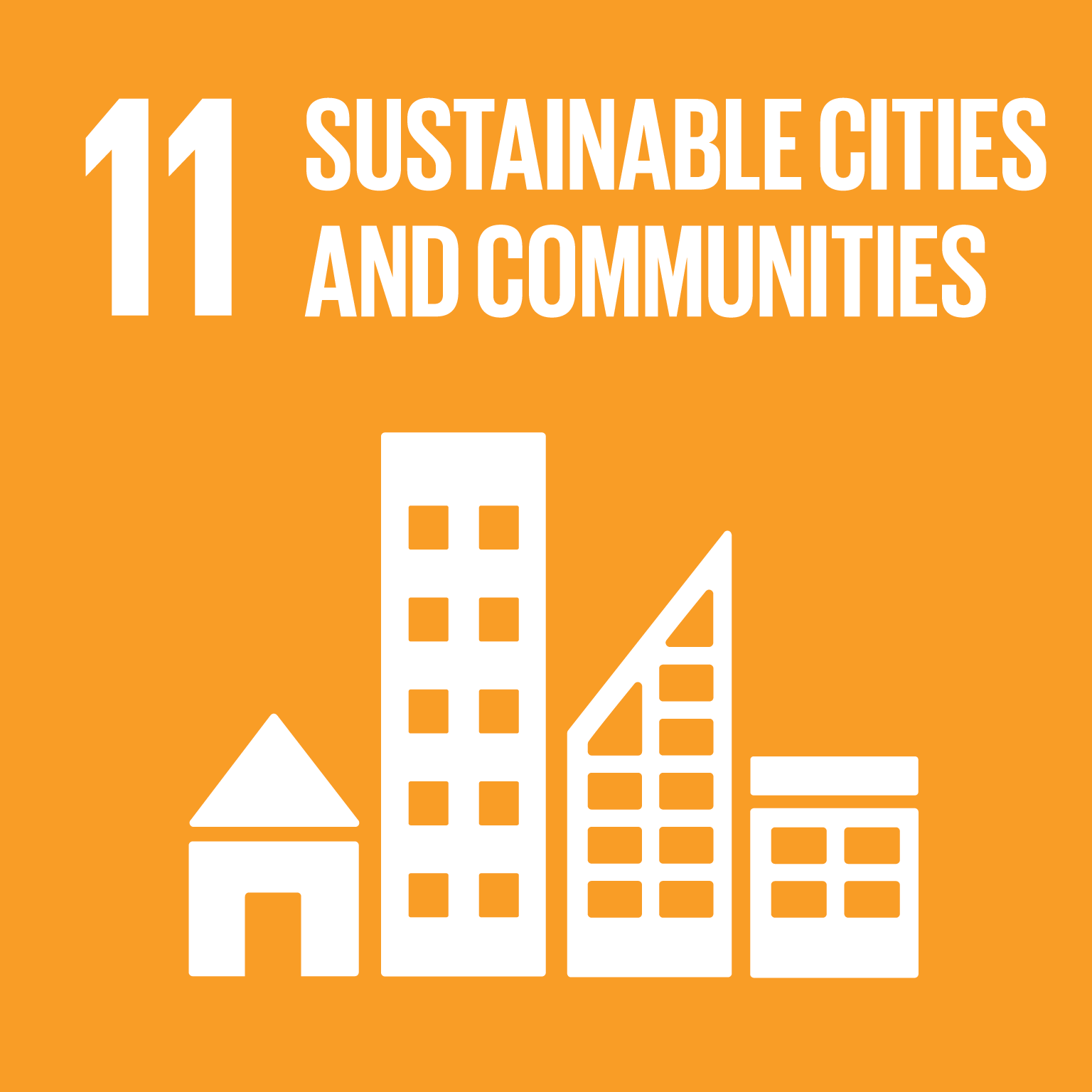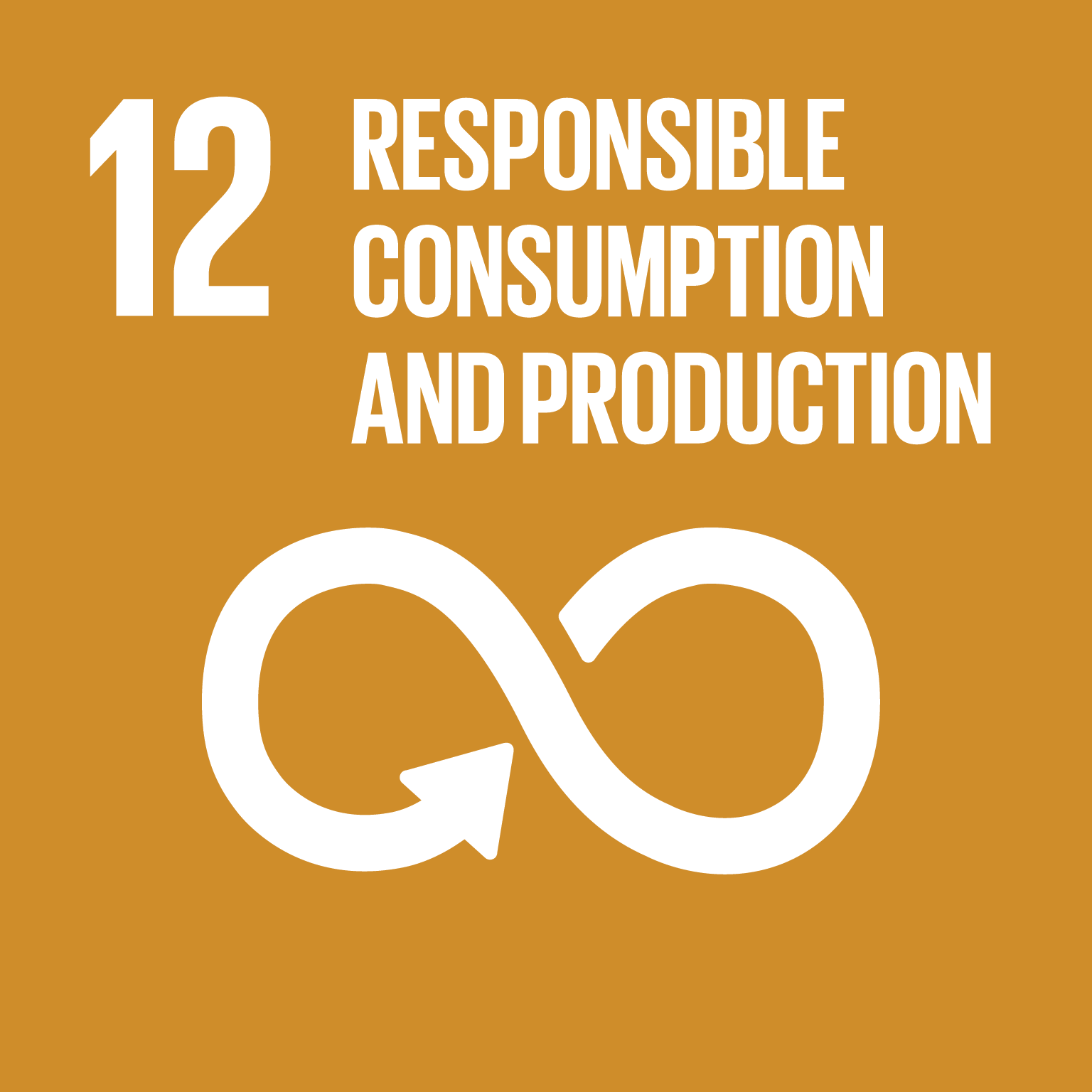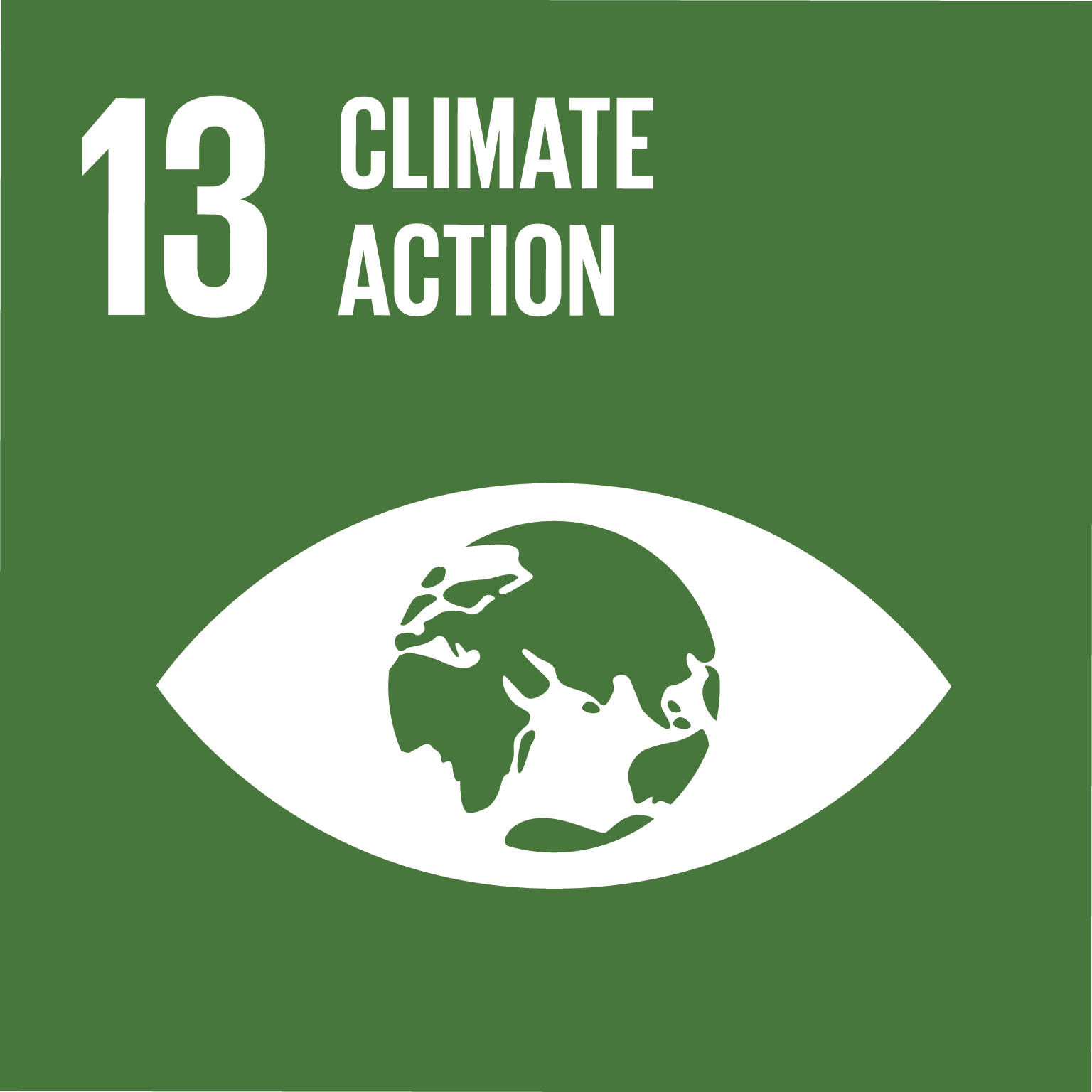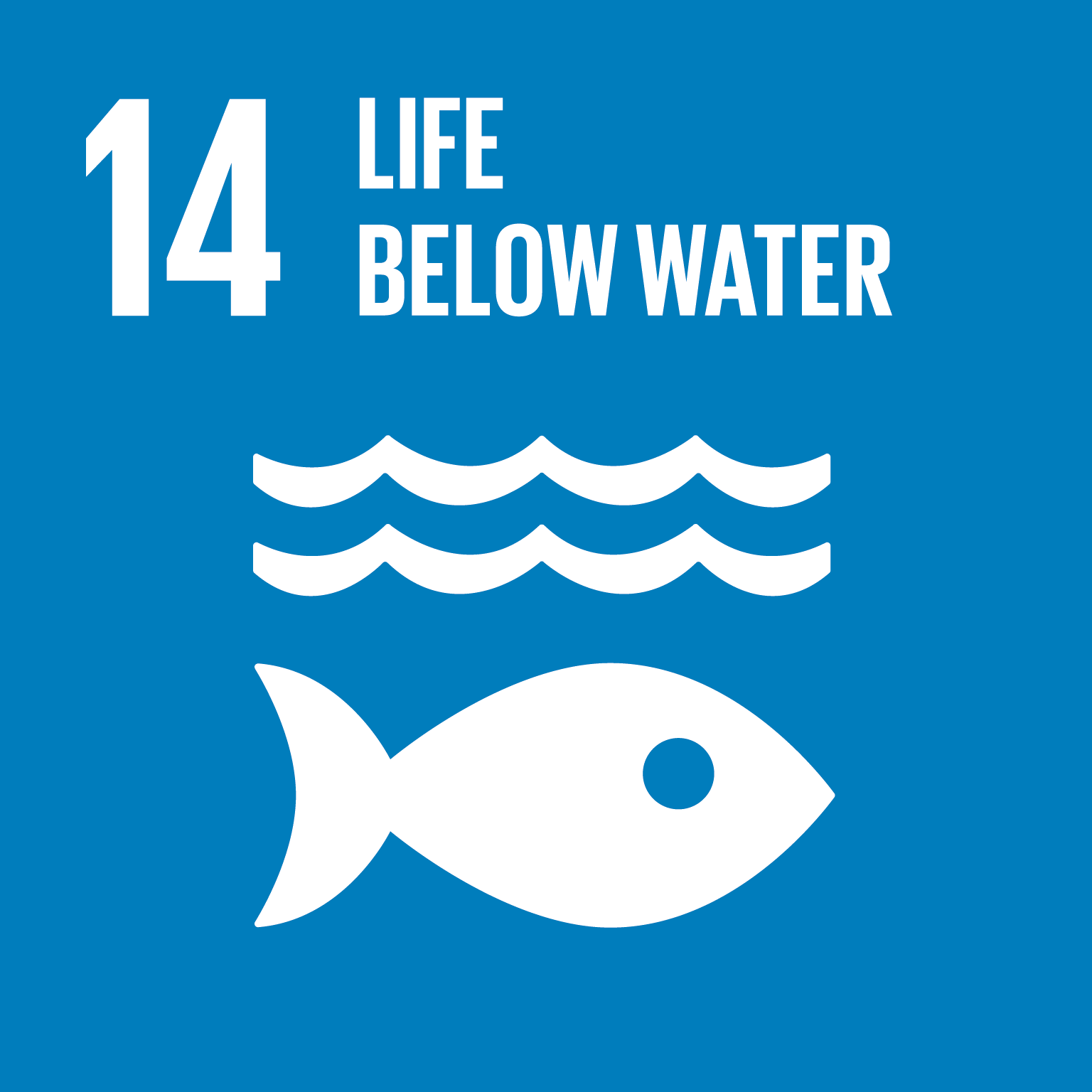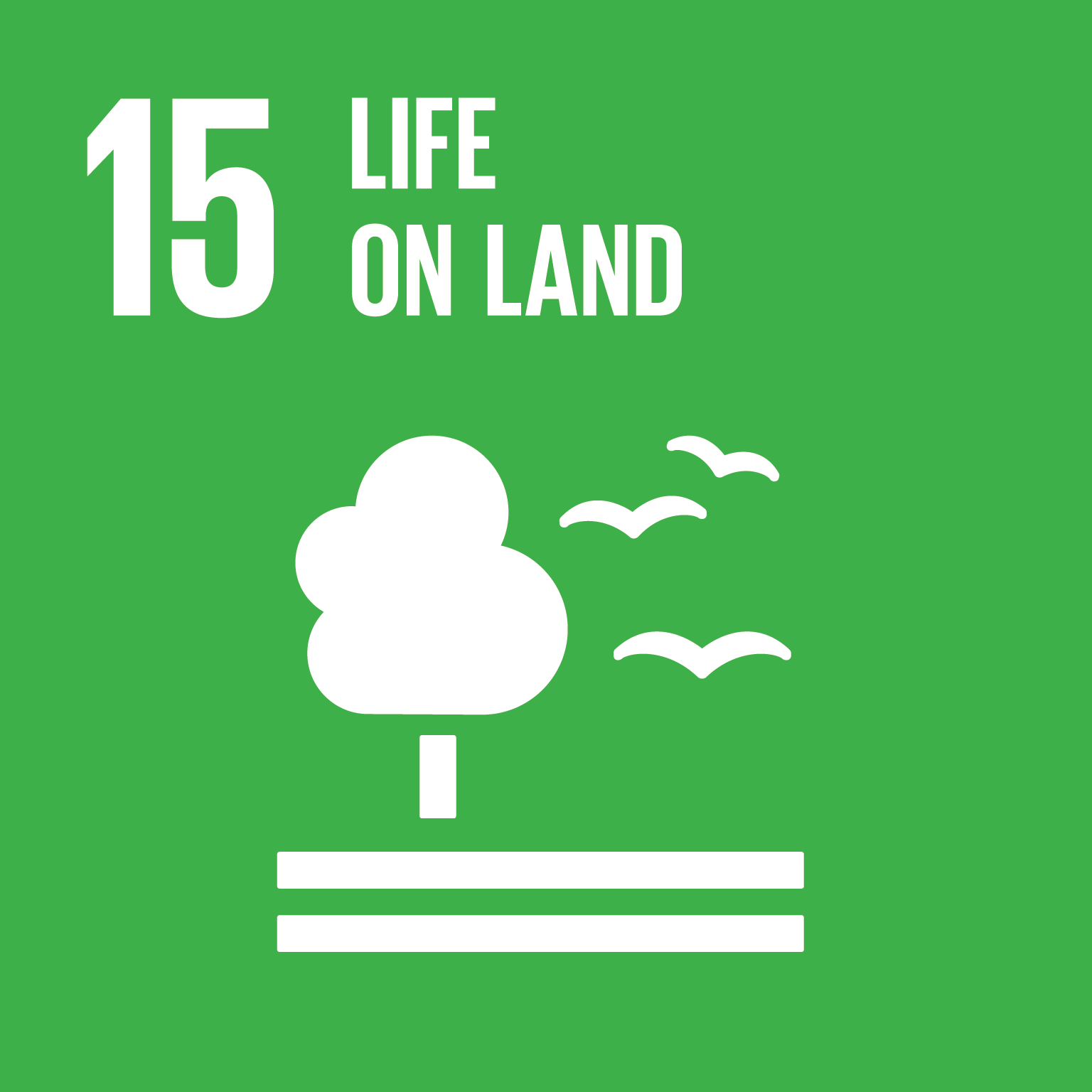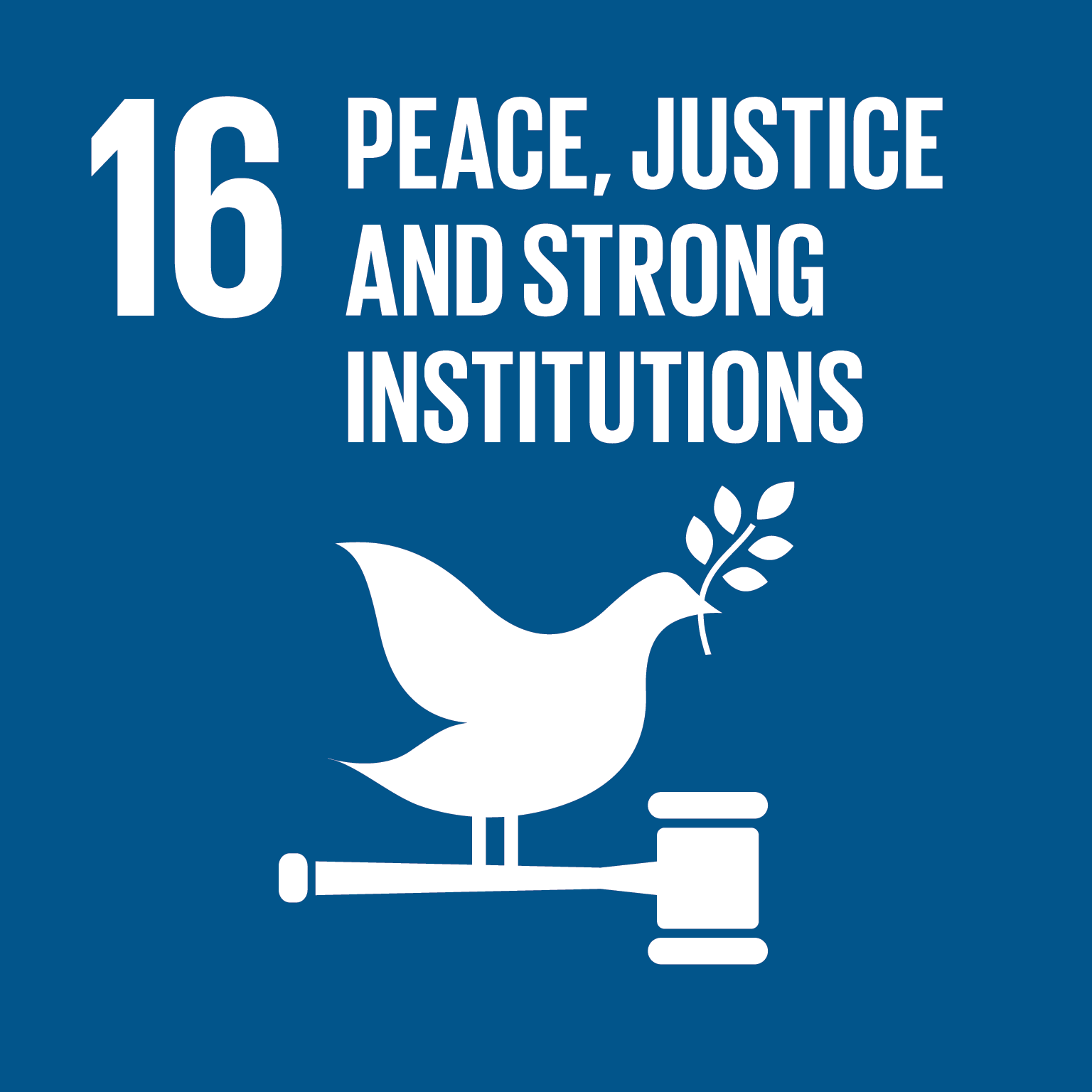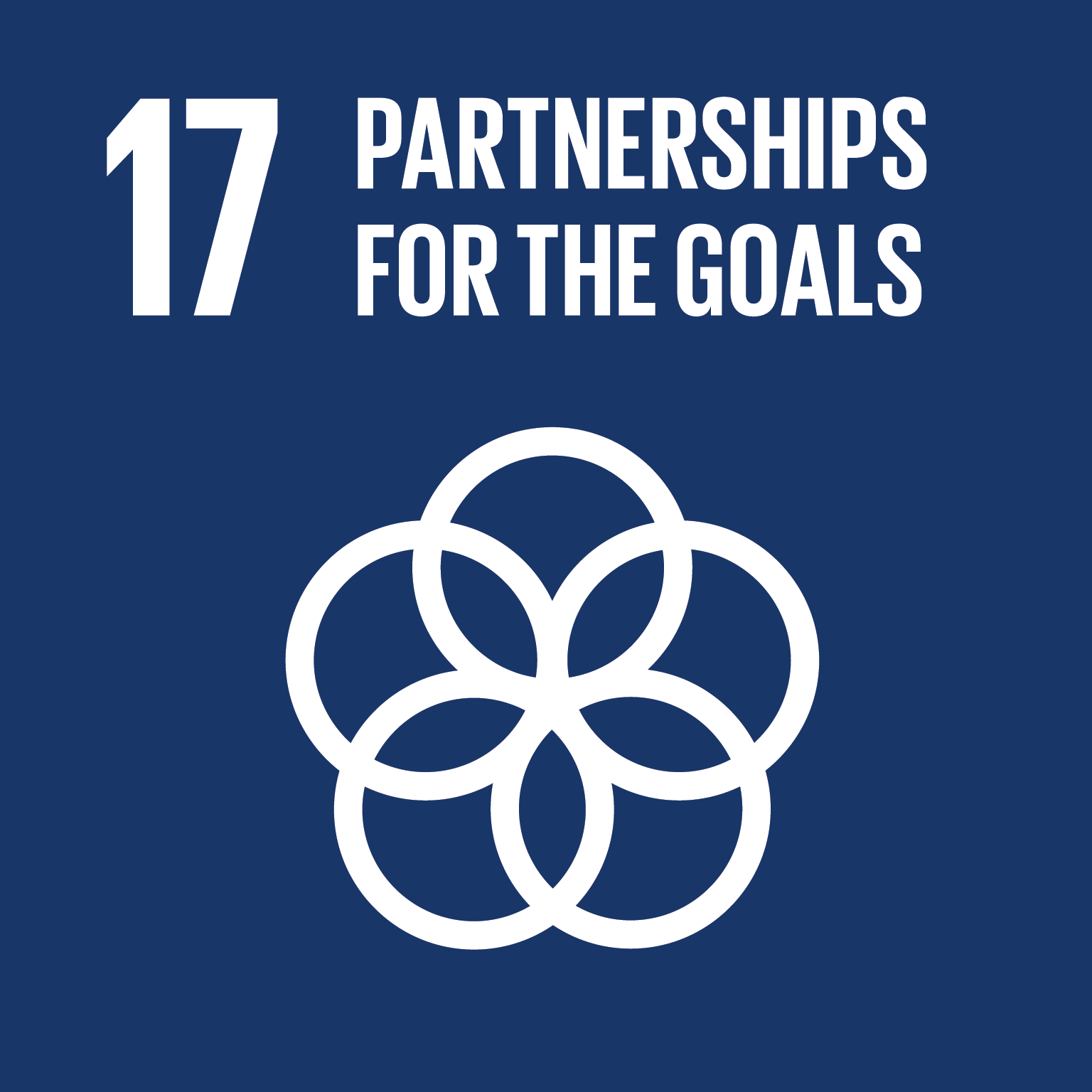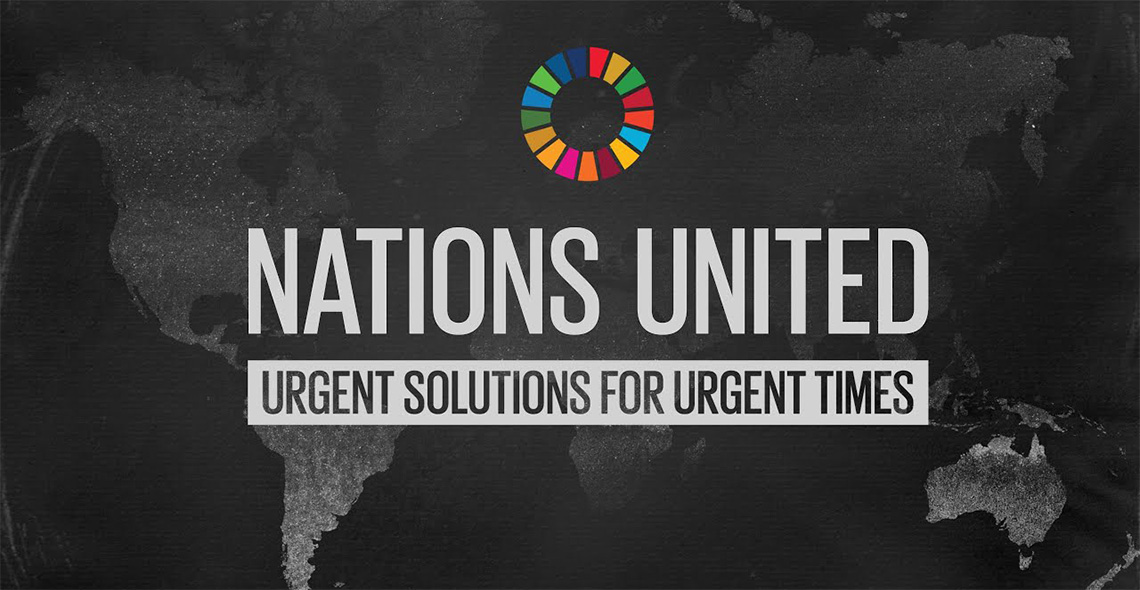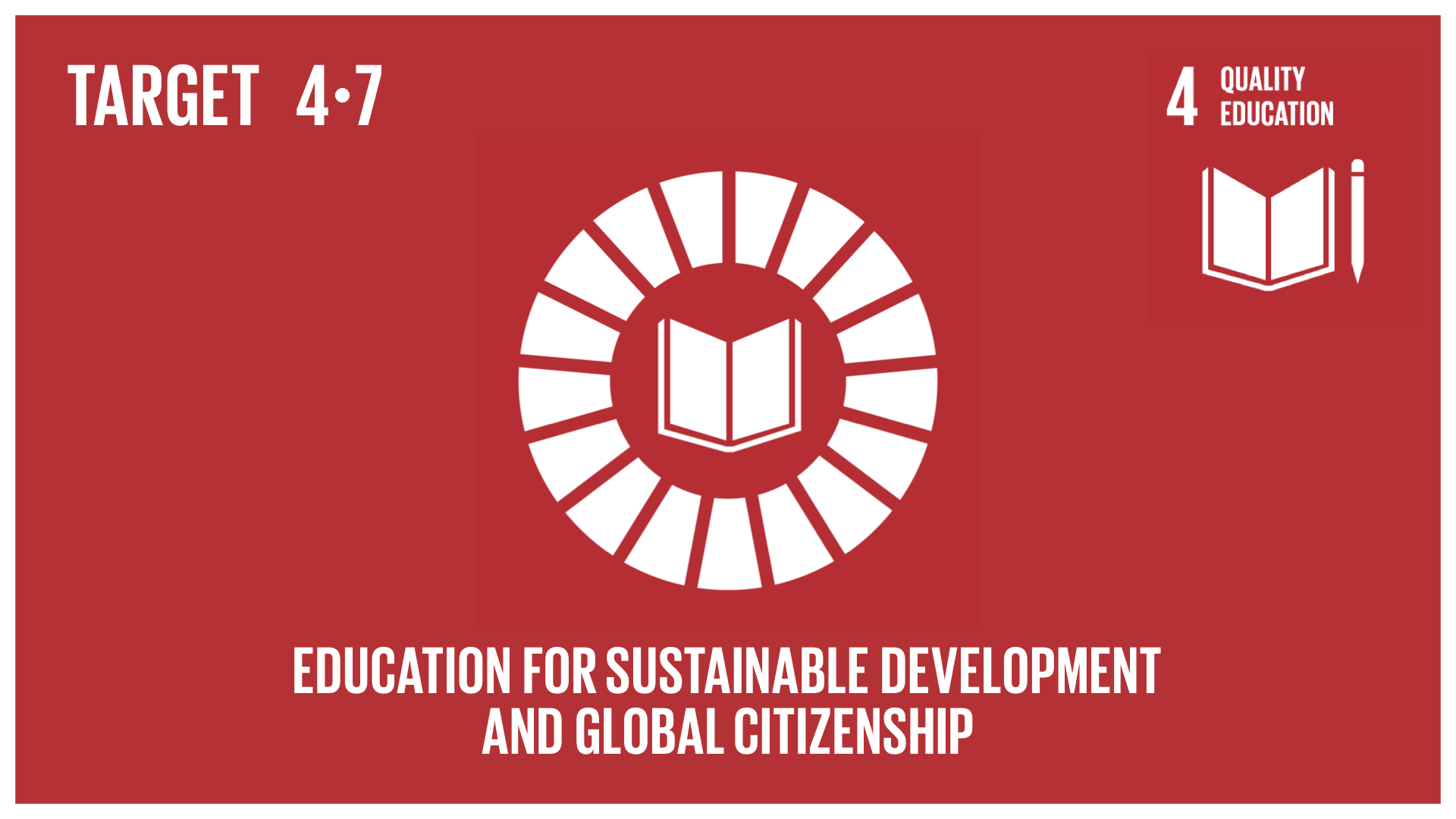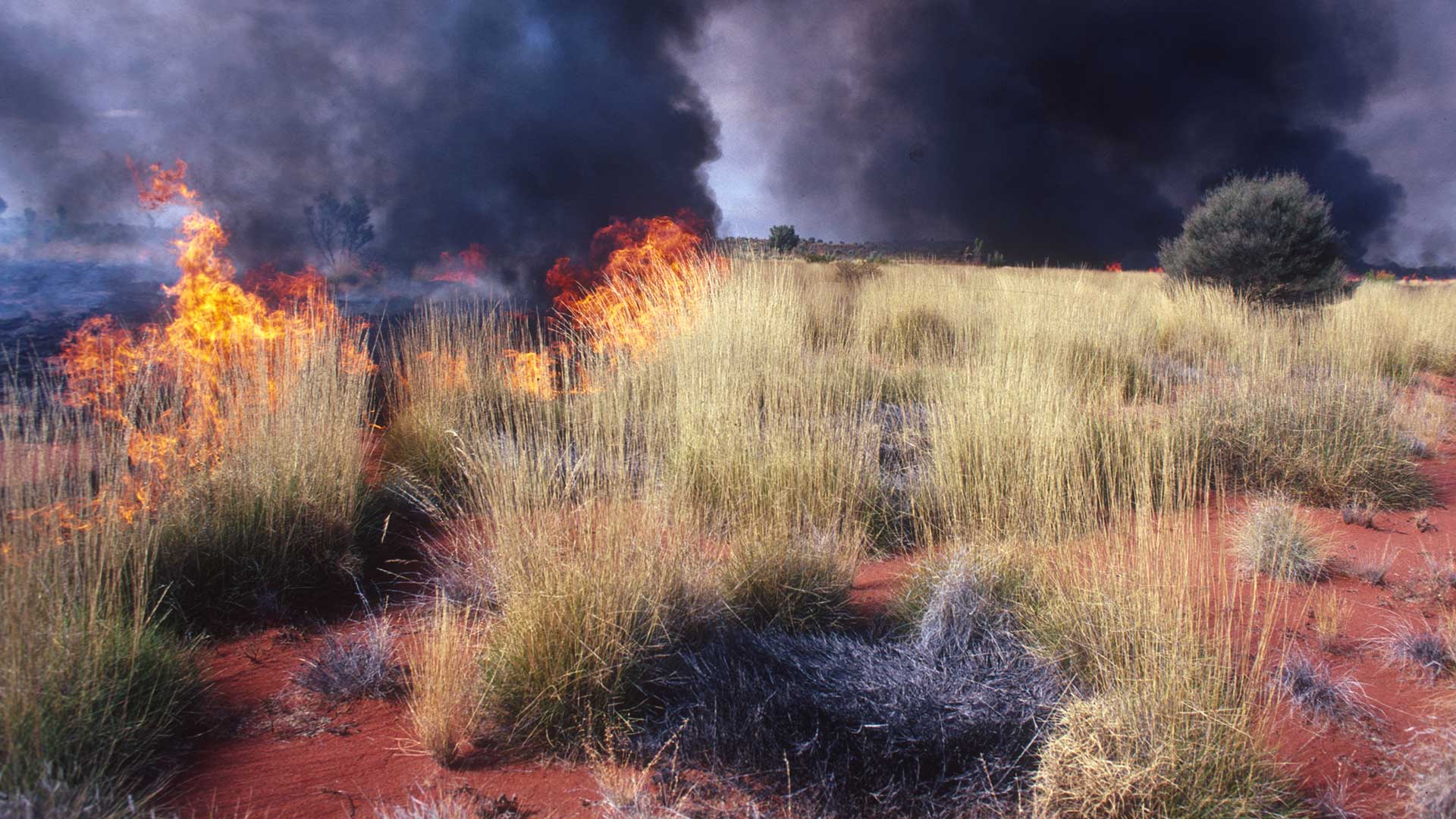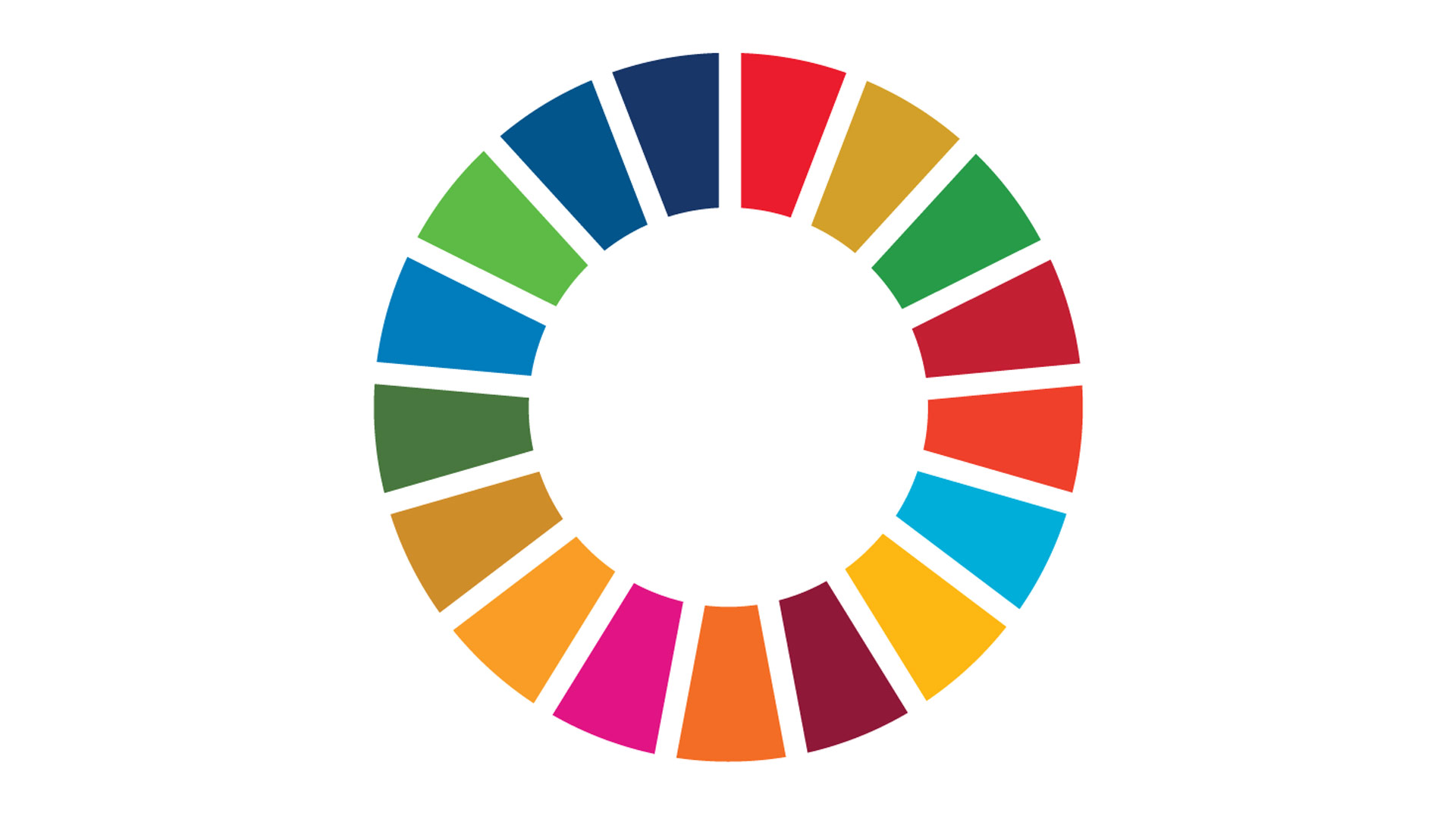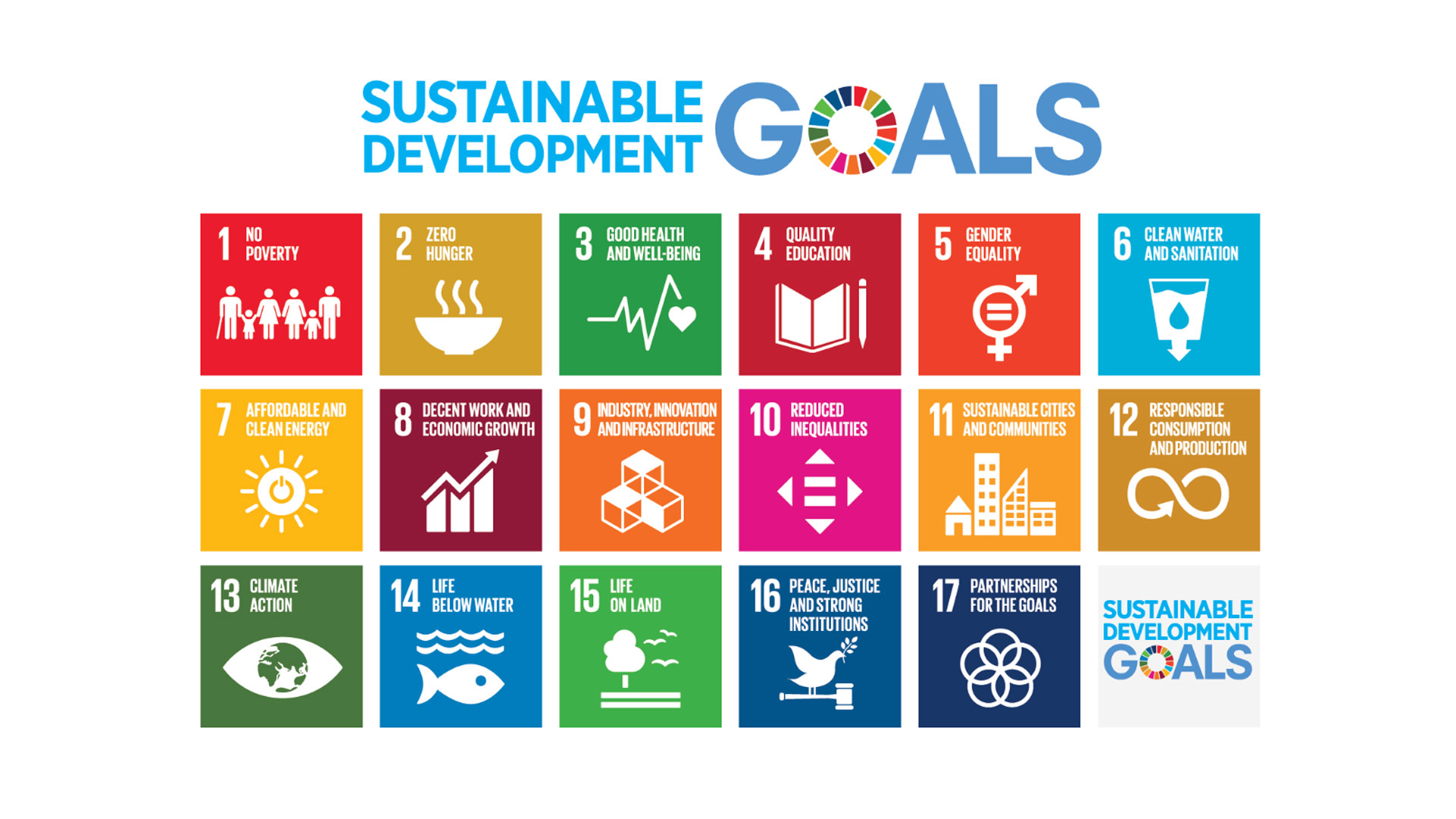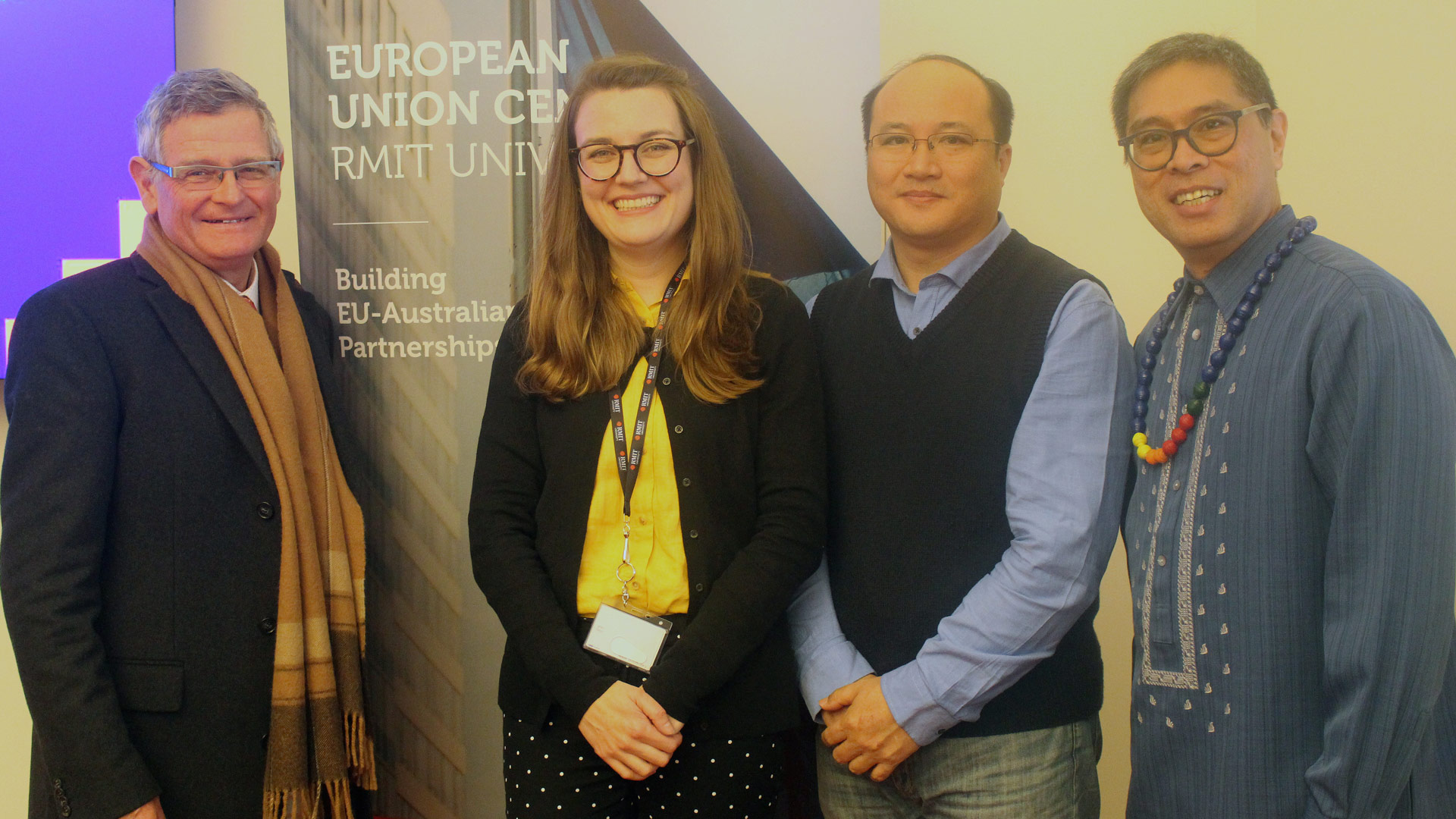Binns, Joanne, Dixon, Freyja, and Guevara, Jose Roberto, “Emergent Partnering and SDG 4 as Transformation: Curriculum GlobALE in Laos”, The Jean Monnet Network on the Implementation of the Sustainable Development Goals (SDGs) in the Asia Pacific 2021 Conference: Europe, the Asia Pacific and the Global Transformation Agenda, RMIT University, Melbourne, 25 March 2021.
Doidge, Mathew and Kelly, Serena “EU-Pacific Engagement Post Covid-19 and Post-Brexit: What Impact on the SDGs?”, The Jean Monnet Network on the Implementation of the Sustainable Development Goals (SDGs) in the Asia Pacific 2021 Conference: Europe, the Asia Pacific and the Global Transformation Agenda, RMIT University, Melbourne, 25 March 2021.
Duke, Chris “Cataclysmic Opportunity Revisited”, The Jean Monnet Network on the Implementation of the Sustainable Development Goals (SDGs) in the Asia Pacific 2021 Conference: Europe, the Asia Pacific and the Global Transformation Agenda, RMIT University, Melbourne, 25 March 2021.
England, Rachel, Guevara, Jose Roberto, and Johnson, Mary, “Transformations”, The Jean Monnet Network on the Implementation of the Sustainable Development Goals (SDGs) in the Asia Pacific 2021 Conference: Europe, the Asia Pacific and the Global Transformation Agenda, RMIT University, Melbourne, 25 March 2021.
Klein, Maren, and Privitera, Damian “The European Union and Sustainable Development Goal 17: Maintaining, Nurturing and Establishing Partnerships in Uncertain Times”, The Jean Monnet Network on the Implementation of the Sustainable Development Goals (SDGs) in the Asia Pacific 2021 Conference: Europe, the Asia Pacific and the Global Transformation Agenda, RMIT University, Melbourne, 25 March 2021.
Shortis, Emma, “Climate Policy and the European Green Deal”, 2021 EU Summer School (for Secondary School Teachers). Challenges for the European Union: Is the Geopolitical Commission the Real Deal?, Melbourne, 19 January 2021.
Shortis, Emma "Lessons from Kyoto: How Australia’s Relationship with the United States Undermines Global Action on Climate”, The Jean Monnet Network on the Implementation of the Sustainable Development Goals (SDGs) in the Asia Pacific 2021 Conference 2021: Europe, the Asia Pacific and the Global Transformation Agenda, RMIT University, Melbourne, 25 March 2021.
Shortis, Emma and Ward, Chloe “Teaching the European Green Deal in Australia”, ESAANZ Conference – Europe in 2020, Online, 3 December 2020.
Shortis, Emma “Introducing the SDGs,” Workshop: Innovating with Purpose for the SDGs, RMIT University Engaging for Impact Conference, 20 February 2019.
Wilson, Bruce "Transforming the World of Work, Economy and Innovation”, The Jean Monnet Network on the Implementation of the Sustainable Development Goals (SDGs) in the Asia Pacific 2021 Conference 2021: Europe, the Asia Pacific and the Global Transformation Agenda, RMIT University, Melbourne, 25 March 2021.
Wilson, Bruce “Regional Innovation to Achieve the UN Global Agenda”, ESAANZ Conference – Europe in 2020, Online, 1 December 2020.
Wilson, Bruce and Shortis, Emma "Achieving the UN 2030 Agenda for Global Transformation: the EU, Australia and the "Good Governance Norm Complex", CESAA Conference 2019: Europe in a Year of Transition: Challenges and Opportunities, RMIT University, Melbourne, 6 November 2019.
Wilson, Bruce, Doidge, Mathew, Shortis, Emma and Guevara, Roberto "Collaborative Approaches to Implementing the United Nations SDG Agenda: A Policy Dialogue" Singapore, 13 June 2019.
Wilson, Bruce “Introduction to the Jean Monnet Network,” RMIT Global Compact Cities Programme event “Building the SDGs from the Ground Up,” RMIT University, 20 March 2019.
Wilson, Bruce “Keynote Address: Regional Resilience and Wellbeing: The Relevance of the Sustainable Development Goals,” Regional Studies Association Australasia Conference, University of Canterbury, New Zealand, 11-13 February 2019.
Wilson, Bruce "Implementing Entrepreneurial Discovery in an Australian Setting," 2018 SMARTER Conference on Smart Specialisation and Territorial Development—Implementation Across Global Networks of Regions, Cities and Firms, Caixa Forum, Sevilla, Spain, 26th - 28th September 2018.


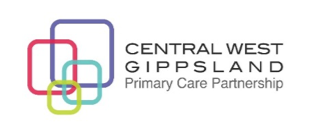 Nikki Robinson, Prevention Coordinator
Nikki Robinson, Prevention Coordinator